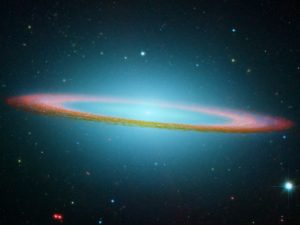but I know that God exists.
Today, more so than at any time in the long history of man, there are those who have convinced themselves that God is knowable and that to understand the nature and composition of God all one must do is delve deeper to fully comprehend truth in the absolute. Such arrogance and conceit in the minds of the created know few bounds; surely God enjoys the encounter with such foolishness, recognizing the futility in such endeavors and the realization that the joke is completely lost on the unwise.

The difficulty in putting God in His place is of course that He is everywhere and nowhere, all-time and no-time. Saint Thomas Aquinas described God as the “Source who has no Source,” that is, God has no beginning and has no end; He has always existed, He has never been out of existence; nothing caused God into being because nothing caused God to be.
Those who deny the existence of God often pose the question “If everything needs a cause, then what caused God?” While current scientific evidence strongly suggests that at some point in ‘time’ the universe began to exist, there is no corresponding moment when God began to exist because He is eternal and not constrained by the notion of time. In truth, God created the universe and time itself. An article written by Trent Horn The Heavens Declare the Glory of God: How the universe provides evidence for the existence of God and published in the March/April 2014 issue of Catholic Answers Magazine provides an excellent overview of the evidence for the creation of the universe and God’s relationship to its causation. In answer to the question “If the universe began to exist, what was God doing during the eternity before the world began?” Horn offers this insight:
St. Augustine confronted this question in the fifth century. His joking response was that for all eternity God was making hell for people who ask questions like this (Confessions, 229). His more serious response was that prior to the creation of the world there was no time. It makes no sense to ask what God was doing prior to the creation of the world, because the creation of the world included the first moment in time.
Those who admit the existence of God but believe He can be identified, quantified, measured, and defined – that is placed into a well-confined box – are arguing from both sides of the same coin. They admit to God’s existence while containing Him within circumscribed limits, thus reducing God to less than God, proffering the argument in support of a demigod who, like the rest of creation, is existential and thus relegated to time and space. Arguably, this god might indeed be knowable but then this notion of god is not God.
I do not know God – but I know that God exists. How do I explain this knowing? Meister Eckhart said it well: “God is a being beyond being and a nothingness beyond being. The most beautiful thing which a person can say about God would be for that person to remain silent from the wisdom of an inner wealth. So, be silent and quit flapping your gums about God.” The truth that we cannot know God does not negate His existence. God loves and that is enough.

Beautiful and to the point…beyond most that may need it most, but perhaps as they grow in their understanding of what is beyond comprehension, they will come back and re-read this beautiful piece once again…
Well worth sharing with our spiritually searching young adults…
Thank you Deacon Chuck!